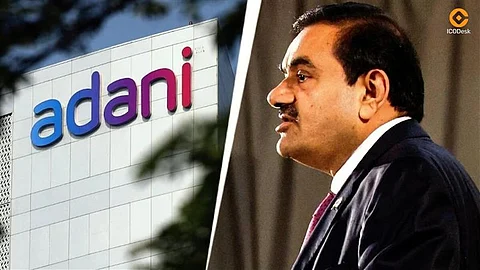

The Adani Group has officially requested the interim government of Bangladesh, currently under Nobel Prize winner Muhammad Yunus, to settle an whopping $800 million in overdue payments for power supplied from its 1.6 GW Godda coal power project in Jharkhand, India. This was written in a letter dated August 27, which was personally signed by Chairman Gautam Adani to Yunus, requesting immediate intervention for early payment by the Bangladesh Power Development Board (BPDB).
Adani emphasized growing financial strain when he said, "The lenders have now been tough on us as we are still honoring our pledge to Bangladesh." He asked the Bangladeshi government to make monthly payments on regular bills on time, along with "sizeable tranches" to start offloading the backlog.
Under a 25-year Power Purchase Agreement entered into in November 2017 by Sheikh Hasina's administration, Adani Power provides almost 10 percent of Bangladesh's peak power demand. In spite of monthly billing of $90–95 million, Adani has been getting only $40–45 million—leading receivables to swell over eight to nine months.
Adani had invested approximately $2 billion in constructing the plant and its specially designed transmission corridor, which was completed within 3.5 years despite pandemic-related delays.
Although Bangladesh has made some effort to meet the backlog—opening letters of credit of $170 million and accelerating payments of $96 million in October—the outstanding dues have grown beyond $800 million as of mid-last year. In turn, Adani Power has alternately cut down electricity supply, initially from 1,400–1,500 MW to approximately 700–750 MW, and then to as low as 520 MW, to force Bangladesh to pay the dues.
Nevertheless, even though such supply cuts were made, Bangladesh obtained a new letter of credit and vowed phased payment before the financial year March 2025, without facing a complete shutdown.
Authorities in Dhaka, such as energy adviser Muhammad Fouzul Kabir Khan, contend that the crisis is connected to foreign exchange limitations and import costs due to international market pressures.
The Yunus government is said to be considering reviewing all legacy power deals on a cost basis, as Bangladesh now enjoys enough domestic capacity.
Despite the dispute, Bangladesh has signaled its intention to retain the Godda arrangement, with mutual interest in renegotiating tariff structures rather than terminating the 25‑year deal.
As of today, Adani’s letter marks the latest step in a broader financial tussle over energy security, bilateral economic pressures, and the evolving criteria for international infrastructure agreements.